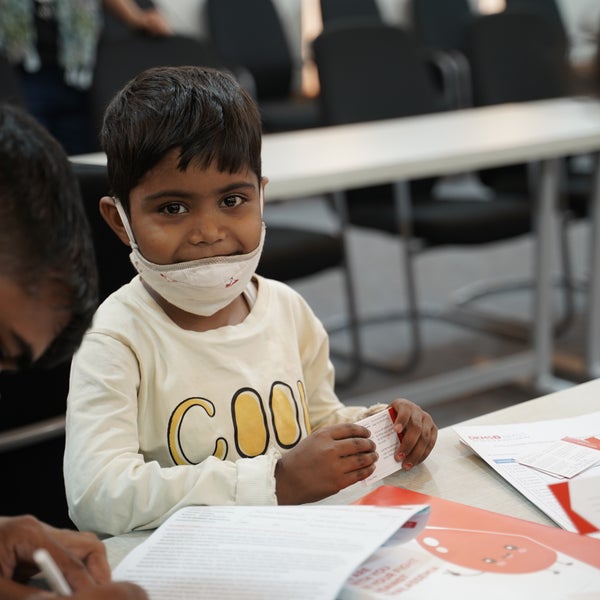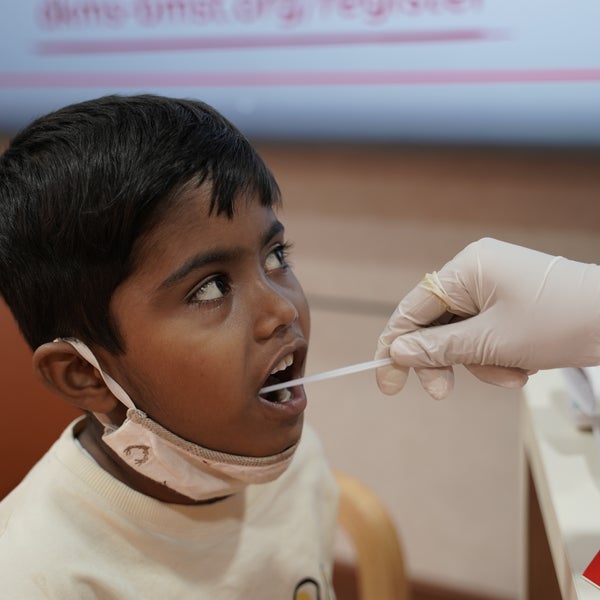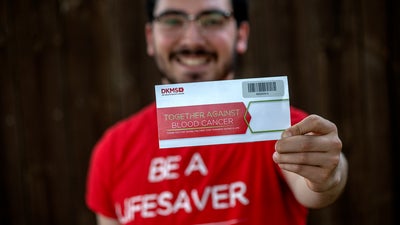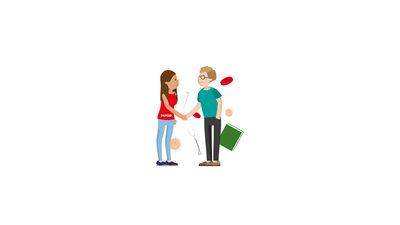
Finding the perfect match: DKMS Free HLA Typing Programme
If someone is diagnosed with blood cancer or a blood disorder and the doctors decide that a blood stem cell transplant is their best chance of survival, the first step is to check whether any of the patient’s siblings would be a suitable donor.
For a blood stem cell transplant to be successful, the HLA (tissue characteristics) of the donor need to match as closely as possible to the patient. Within our DKMS Free HLA Typing Program we aim to identify family donors by carrying HLA typing costs for patients in need of a transplant and their family members in low- and middle-income countries. We also support unrelated donor searches for patients who do not find a suitable family donor.
"Thalassemia camps"
An example of such assistance is the so-called “Thalassemia camps” in India. Thalassemia is an inherited blood disorder in which a defect in the protein haemoglobin reduces the transport capacity for oxygen in the blood, which leads to life-threatening complications. In India, every year more than 10,000 children are born with thalassemia. Due to thalassemia, at least 100,000 people die before even turning 20, every year.


With over 42 million carriers, India is known as the thalassemia capital of the world. Many thalassemia patients require regular blood transfusions, the most effective treatment though is a stem cell transplant, ideally at an early age
This results in an extremely high need for transplants among young children. DKMS cooperates with 18 local NGOs and transplantation clinics in India that organise events where the thalassemia patients and their siblings provide buccal swab samples for HLA typing to identify whether they have a suitable family donor. To reach the camps, the families spare no effort. Many of them live in remote rural areas and have to travel several hours or even days by train for the first time in their lives.
"It was very moving to attend the thalassemia camp: A total of 38 families travelled, some of them for a very long time, to have their sick children and siblings typed. The longest journey was made by a family from a remote village: they had to travel 48 hours by train to Mumbai in order to take advantage of the free typing service. This family had never travelled anywhere before, nor taken a train!" DKMS employee.
State-of-the-art- analysis for typing
DKMS covers the costs of the typing and the samples are analysed in our high-throughput laboratory, the DKMS Life Science Lab in Dresden, Germany. In cases where there is no matching sibling for a sick child, there still remains hope that an unrelated donor might be a match.
"Seeing the hopeful faces of the families who had taken on such great efforts to come to the camp, the siblings, some of whom were not yet two years old but already had to give their sample, and the many helpers and highly motivated doctors who tirelessly cared for and informed the families before they were called to 'swab' - all this moved us very much and confirmed us in our work!" DKMS employee.


